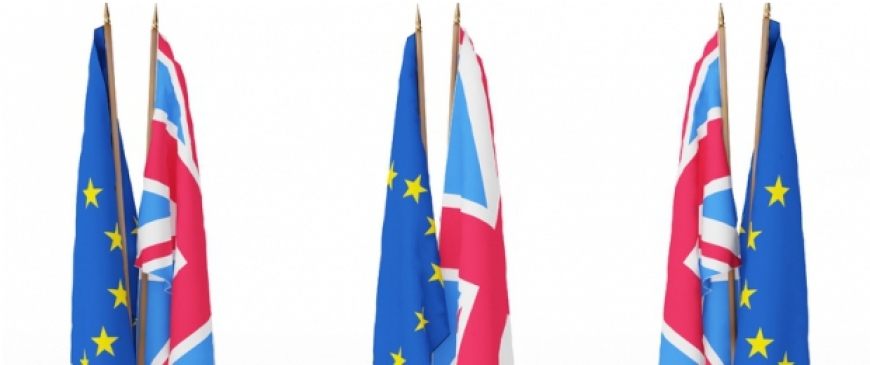
Britain would be unwise to thwart Europe's treaty
Germany's ambition to salvage large parts of the European Union constitutional treaty may provoke a serious rift between Britain and its partners. Tony Blair and Gordon Brown may be heading for a collision over what to do about the German plan. But the general view in Britain seems to be that EU treaty change is irrelevant. Indeed, something of a consensus stretches from Treasury officials to Conservative leaders to The Economist: they say the EU should forget about treaty change and focus on crucial challenges such as completing the Doha trade round, revising the EU budget, reducing carbon emissions and economic reform.
However, the EU will be incapable of tackling these important issues unless it first clinches a deal on treaty change.
The Germans want the EU summit in June to approve both a timetable for a conference to amend the existing treaties, and the outline of an agreement on proposed changes. The new treaty would not be "constitutional" and would lose references to an anthem and a flag, but would include the main institutional provisions of the constitutional treaty (such as the fulltime president, the foreign minister and new rules on voting). The charter of fundamental rights, which worries many business leaders, would be axed. The Germans claim the institutional package is not negotiable, since it was a delicately crafted compromise; if one government tried to amend one bit, others would demand the same right.
It is becoming clear that most of the 27 member states, and not only the 18 that have ratified the constitutional treaty, will back the German plan. Nicolas Sarkozy has indicated that if he wins the French presidency he will support the Germans and ratify the new treaty in parliament (of his rivals, François Bayrou would back the Germans, while Ségolène Royal's views are unclear, but both promise referendums on any new text). The Dutch, Czech and Polish governments have doubts about the German scheme.
However, the British would be unwise to count on others joining them to thwart the plans of the German chancellor Angela Merkel. She is emerging as a powerful and effective leader and has dominated recent EU summits. Other leaders will think twice before vetoing the deal with which she wants to crown the German presidency.
Britain lacks a clear policy on treaty change. Mr Blair will probably represent Britain at the June summit, but Mr Brown will almost certainly become prime minister only days later. Some Blairites want Britain to accept most of the German package, then ratify the new treaty in parliament. They say the Brown government should simply ignore what will be a Tory and tabloid campaign for ratification by referendum. They point out that if EU governments ratified the treaty in 2008, it would be out of the way and forgotten before the British election expected in 2009. But some Brownites believe that if Britain signed up to anything more than the most minor institutional ad-justments, it would be impossible to resist calls for a referendum, which could easily be lost. So they want to block the German plan. They worry that Mr Blair may sign up to the plan and then try to bounce Mr Brown into swallowing it. Mr Brown's allies say he would not do so.
Suppose that Britain alone, or with one or two allies, vetoed the deal that most others want. Being blamed for the ensuing rancour, Britain would lose influence across a swath of policy areas. The first casualty would be further EU enlargement. Most governments are firmly opposed to other countries joining before the EU adopts significant institutional reforms. They believe that "deepening" (creating stronger institutions) and widening go hand in hand: if the EU stops deepening it must stop enlarging, lest the institutions become ineffective. Without a deal on a new treaty, most Balkan applicants and Turkey would have to forget about membership. Only Croatia, which has made good progress with its membership talks, might squeeze in anyway.
A less influential Britain would find it hard to win the arguments, to start next year, over reshaping the EU's budget and farm policy. And its voice would count for less in areas such as economic reform and climate change.
In an EU stricken by institutional paralysis, with Britain marginalised, many member states would expect France and Germany to provide leadership. Ms Merkel and the new French president would dominate the EU's agenda. They and others would probably create new groupings that excluded awkward members such as Britain.
None of this would be good for Britain. It should therefore strive to find a compromise with its partners, and be willing to accept much of Merkel's package. But she should remove the provisions that transfer new powers to the EU, since they would oblige Britain to hold a referendum. Thus the more sensitive extensions of majority voting should be dropped, except where it is practicable to give Britain an "opt out" from the area concerned.
Germany and many others will be reluctant to make such concessions, given that Britain has already signed the constitutional treaty and declared its negotiation a triumph. But unless Britain and its partners can find a way of meeting in the middle, bitter institutional arguments will dominate the EU and prevent it from tackling the issues that matter.
